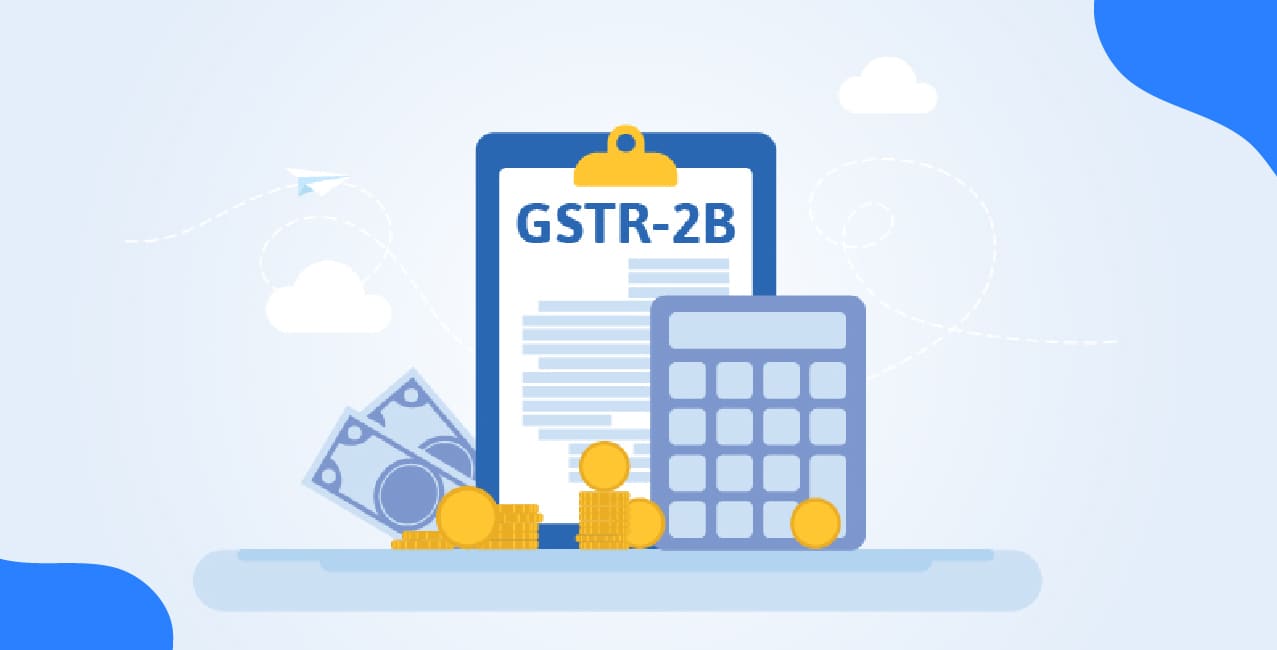GST on Commission – Complete Guide on Tax Rates & Applicability

Check Your Loan Eligibility Now
By continuing, you agree to LoansJagat's Credit Report Terms of Use, Terms and Conditions, Privacy Policy, and authorize contact via Call, SMS, Email, or WhatsApp
Meet Karan, a real estate agent in Delhi. Last month, he closed a deal on a property worth ₹80 lakhs and earned a commission of ₹1.6 lakhs (2%). While he celebrated the income, he forgot to account for the 18% GST applicable on brokerage services, that’s ₹28,800 in tax liability. Like Karan, many professionals across sectors often overlook how GST impacts their commission-based earnings.
Whether you're a real estate agent sealing property deals, an insurance advisor helping clients choose policies, or a stockbroker executing trades, your income likely comes from commissions. But are you fully aware of how Goods and Services Tax (GST) affects that income?
Commission Income and GST: What You Need to Know
Commissions and brokerage fees are common forms of earnings for intermediaries who bring together buyers and sellers. These earnings are treated as taxable supplies under GST, meaning they are subject to tax just like goods sold or services rendered.
Since July 1, 2017—when GST replaced various indirect taxes like service tax, VAT, and excise duty—brokers and agents have had to charge GST on their commissions. This shift streamlined taxation, but it also brought in a need for compliance and understanding of new rules.
Who Needs to Pay GST on Commission?
GST applies to all commission agents and brokers who cross a specific income threshold. If your turnover from taxable supplies exceeds the prescribed limit, you must register for GST and begin charging tax on your services.
GST Threshold Limits:
- ₹20 lakhs for most Indian states
- ₹10 lakhs for special category states (like those in the North East and hilly regions)
If your annual income is below this threshold, you're not required to register, but voluntary registration is possible, and in some cases, advantageous. Additionally, even if you're not registered, your client may be liable to pay GST on your behalf under the Reverse Charge Mechanism (RCM), depending on the transaction.
What’s the GST Rate on Commission?
For most brokers and commission agents, the applicable GST rate is 18%. This standard rate applies to a wide range of professionals, including:
- Real estate brokers
- Insurance agents
- Stockbrokers
- Mutual fund distributors
- Customs house agents
Let’s say you are a real estate agent who earns ₹50,000 in commission on a property transaction. You would add 18% GST to your bill—i.e., ₹9,000—bringing the total invoice amount to ₹59,000. Your client pays the full amount, and you are responsible for remitting the GST portion to the government.
Note: Always confirm sector-specific deviations in tax rate—while rare, they may apply in niche cases.
Read More – GST on Sponsorship
Can You Claim an Input Tax Credit (ITC) on Business Expenses?
Yes, commission agents and brokers who are registered under GST can claim Input Tax Credit for GST paid on expenses related to their services. This means you can set off the GST paid on business inputs (like office rent, professional services, or software subscriptions) against your GST liability.
GST Registration Process for Commission Agents
If you are crossing the mandatory turnover threshold or opting for voluntary registration, here’s how you can register for GST:
- Visit www.gst.gov.in
- Choose “Services” > “Registration”
- Fill in your details, including PAN, Aadhaar, email, and phone number
- Upload required documents (identity proof, address proof, bank details)
- Submit your application
- Once approved, you'll receive your GSTIN (Goods and Services Tax Identification Number)
This GSTIN must be displayed on all invoices and documents related to your business. Failure to register or declare commission income could result in penalties.
What’s the Difference: Pre-GST vs Post-GST Tax Structure?
Before GST was rolled out, commissions were taxed under Service Tax, which had a rate of 15%. In some states, brokers also had to pay VAT, adding another 5–15%. The complexity made compliance a headache.
Are There Any GST Exemptions for Commission Income?
Not every type of commission income attracts GST. Here are some exemptions that you should be aware of:
- Export of Services: If you're an Indian commission agent providing services to a principal located outside India and receiving payment in convertible foreign exchange, the service may qualify as zero-rated under GST (treated as export).
- Agricultural Produce: Commission services related to the sale or purchase of agricultural produce—especially if done through an Agricultural Produce Marketing Committee (APMC)—may be exempt from GST.
- Low Turnover: If your total commission income is less than ₹20 lakhs annually (₹10 lakhs in special category states), and you haven’t opted for voluntary registration, you’re exempt from charging GST.
It’s wise to consult with a tax advisor to see if any exemptions apply to your specific business model.
Invoicing and Compliance Responsibilities
Also Read - GST on Labour Charges
Once you're GST-registered, there are some essential compliance rules to follow. These help ensure that your business stays in good standing with tax authorities and avoids penalties.
You must:
- Issue GST-compliant invoices, showing GST breakdown (CGST, SGST, or IGST)
- File GST returns such as GSTR-1 (outward supplies) and GSTR-3B (summary return)
- Maintain proper books of accounts
- Make timely GST payments via the online portal
- Reconcile monthly/quarterly invoices with filed returns
Example: Priya, a freelance marketing consultant in Bengaluru, earns ₹50,000 from a client in Karnataka. Since she is registered under GST, she must:
- Issue a GST-compliant invoice:
- Service Value: ₹50,000
- CGST @ 9%: ₹4,500
- SGST @ 9%: ₹4,500
Total Invoice Amount: ₹59,000
- File GST Returns:
- Include the ₹50,000 income in GSTR-1 (outward supplies)
- Report the tax collected in GSTR-3B
- Include the ₹50,000 income in GSTR-1 (outward supplies)
- Maintain records:
- Keep client-wise invoices, payment proofs, and tax records
- Keep client-wise invoices, payment proofs, and tax records
- Pay GST on time:
- Deposit ₹9,000 (₹4,500 CGST + ₹4,500 SGST) using the GST portal
- Deposit ₹9,000 (₹4,500 CGST + ₹4,500 SGST) using the GST portal
- Reconcile invoices with returns:
- Ensure what’s reported in GSTR-1 matches the payment details in GSTR-3B
- Ensure what’s reported in GSTR-1 matches the payment details in GSTR-3B
Using accounting tools like Tally, Zoho Books, or QuickBooks helps automate this process, minimising manual errors and improving compliance efficiency.
Understanding Principal-Agent Liability under GST
Under the GST framework, the roles of the principal (your client) and agent (you, the broker) are well-defined.
When Reverse Charge Mechanism (RCM) Applies
Conclusion:
GST is more than a tax; it's a legal requirement and a compliance framework that directly affects your earnings, operations, and business reputation. As a broker or commission agent, understanding your obligations under GST is essential for growth, transparency, and long-term financial health.
Here’s a quick checklist:
- Check your turnover: Are you above the registration threshold?
- Know your rate: Do you fall under the 18% GST slab?
- Maintain your records: Are your invoices GST-compliant?
- Claim your credits: Are you availing of all eligible ITC?
Staying compliant isn’t just about avoiding penalties—it’s about running a smoother, more trustworthy business.
Frequently Asked Questions
1. Is GST applicable on referral commissions?
Yes, if the referral income is above the threshold, GST is applicable at 18%.
2. Can I claim ITC if I’m an insurance agent?
Yes, if you’re GST-registered and the expenses are directly related to your business.
3. Is commission income below ₹20 lakhs taxable?
No, unless you opt for voluntary registration or your client is liable under RCM.
4. What happens if I don't pay GST on commissions?
You may face interest, penalties, and legal consequences.
5. Can I register for GST voluntarily?
Yes, and it’s often beneficial if you work with large clients who prefer dealing with GST-compliant vendors.
Other Important GST Pages | ||||
About the author

LoansJagat Team
Contributor‘Simplify Finance for Everyone.’ This is the common goal of our team, as we try to explain any topic with relatable examples. From personal to business finance, managing EMIs to becoming debt-free, we do extensive research on each and every parameter, so you don’t have to. Scroll up and have a look at what 15+ years of experience in the BFSI sector looks like.
Subscribe Now
Related Blog Post
Recent Blogs
All Topics
Contents
Quick Apply Loan
Consolidate your debts into one easy EMI.
Takes less than 2 minutes. No paperwork.
10 Lakhs+
Trusted Customers
2000 Cr+
Loans Disbursed
4.7/5
Google Reviews
20+
Banks & NBFCs Offers
Other services mentioned in this article








